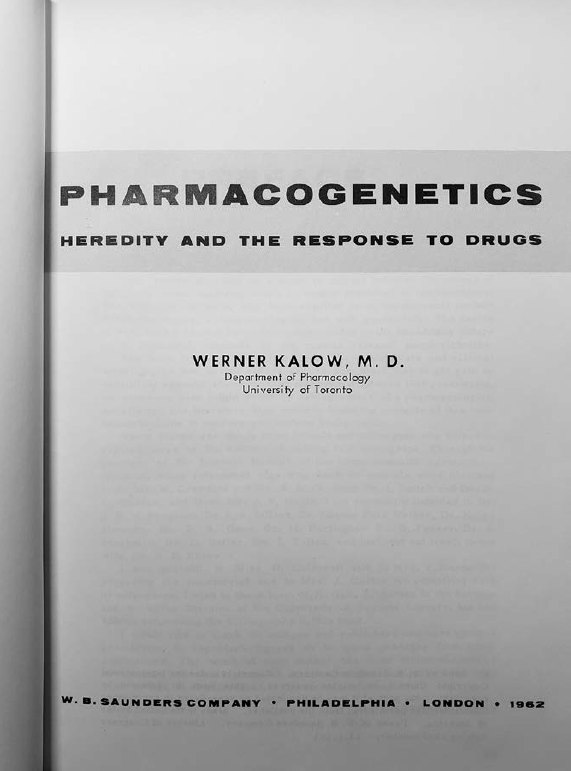
The History of Pharmacogenetics
While the term “pharmacogenetics” was coined by Friedrich Vogel in 1959, the relevance of inherited genetic traits in affecting the clinical outcome to xenobiotics had been observed long before and continues to be studied today.
Image: jcomp
Pharmacogenetics is the division of science addressing how genetic factors contribute to the metabolism, response, and side effects of a given medication. What was once regarded as a subdivision of genetics and pharmacology is now recognized as its own field and has its own unique story of origin. While the term “pharmacogenetics” was coined by Friedrich Vogel in 1959, the relevance of inherited genetic traits in affecting the clinical outcome to xenobiotics has been observed long before.
Figure: Friedrich Vogel’s article “II. Moderne Probleme der Humangenetik,” which coined the term “pharmacogenetics” (1959).
In fact, there is much hope that pharmacogenetics can help unravel the “mysteries” as to why different people may display variable responses to the same medication as well as identify new drug targets. This article will highlight the conceptual framework for pharmacogenetics advanced by pioneer scientists Arno Motulsky and Friedrich Vogel (both human geneticists), as well as Werner Kalow (clinical pharmacologist), leading up to the creation of modern pharmacogenetics. Finally, the practical implications and first steps toward implementation for current psychiatric treatment are reviewed followed by an outlook on future studies.
Figure: Werner Kalow’s book Pharmacogenetics: Heredity and the Response to Drugs (1962).
Selected Publications
From the Origins of Pharmacogenetics to First Applications in Psychiatry
Müller DJ, Rizhanovsky Z. Pharmacopsychiatry. 2020 Jul;53(4):155-161.


